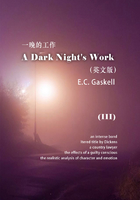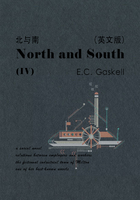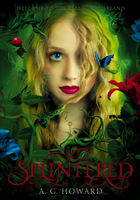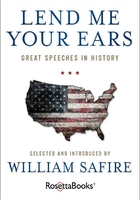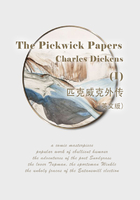Getting Der's wheelchair into chris Pamelas converted Dodge Caravan wasn't easy. Dev bore the process without complaining, but Charlie knew Dev hated it. Hated that it had to be done with the garage door open, so that anyone walking by could see. Hated Chris's grim determination as he muscled the wheelchair up the ramp and through the not-quite-wide-enough side door. Most of all, Charlie knew how much Dev hated Pamela's concern.
No. What Dev hated was being the cause of Pamela's concern, even if it wasn't his fault. He hadn't chosen to be paralyzed.
Charlie understood completely.
"Careful!" she exclaimed. "Honey, don't—" She craned and fluttered. "Honey, you're going to scrape his arm!"
"Mom, chill," Dev said. Unlike Charlie, he did call their foster parents Mom and Dad. Maybe because he was younger? Chris and Pamela wanted both boys to call them Mom and Dad. Charlie just couldn't.
With Charlie's help, Chris got the wheelchair into the van and oriented it so that Dev was facing forward.
"Safe and sound," Dev told Pamela. "See?"
Charlie secured the straps that kept Dev's wheelchair in place. His hand hurt where his stitches were, but he pushed past the pain and worked quickly, knowing Dev hated this part, too. He straightened up, one knee on the floor of the van and his other foot planted by Dev's chair.
"Give me some skin," he said to make Dev laugh.
Dev skimmed his hand over Charlie's, a smooth-as-silk slide.
"Nice, my brother," Charlie said.
"Nice, my brother," Dev replied. He grinned. "Hey. What do you call a brownie with nuts?"
Charlie knew the answer, but he played along. "I guess I'd call it… a brownie with nuts."
"A Boy Scout!" Dev crowed. He slapped his knee. "I'm so awesome. I know."
"Uh-huh. Is that why the ladies love you?"
Dev gave him a point and wink. "They do love me, my brother, and I love them. Wanna know why? Because I'm—"
"So awesome?"
"You better believe it," Dev said.
Charlie did.
"Dev? Charlie? Everyone ready?" Pamela asked, peeking into the van. She wore heels and her nicest dress.
"All set," Charlie said, and Pamela looked at him with such pride that Charlie's heart constricted.
"My sweet boy," she told him. "A high school graduate!"
"Almost a high school graduate," Dev pointed out. "Hell, they might give him the boot at the last second."
"Oh, they will not, and, Dev, watch your mouth," Pamela scolded. "And, Charlie, you are allowed to smile, you know. You look so serious!"
For Pamela's sake, Charlie smiled, and Pamela's face lit up. She leaned into the van and gestured for him to come closer. Physical affection was hard for him, but for Pamela, Charlie would do almost anything. He hugged her awkwardly and steeled himself for the big wet kiss he knew was coming.
The seniors congregated by the main building while their families and friends and parents and guardians got settled in the chairs set up on the lawn to watch the ceremony. To be signed by your parent or guardian, forms always said, and they said that for Charlie. Charlie was the kid with the guardians instead of the parents. Whatever.
You have family out there just like everyone else, he told himself, thinking especially of Dev. Family is how you define it.
"Du-u-ude," said Ammon, Charlie's best friend. He came toward Charlie at half speed, his strides and the pumping of his arms exaggerated. He was pretending, Charlie could only assume, to be a track star whose triumphant passage across the finish line was being rebroadcast. "Supah slo-mo, yo?"
Ammon held up his hand, still moving through molasses, for a high five. Charlie slapped his palm, and Ammon, mercifully, returned to normal mode, or what counted as normal for him. Ammon had a baby-smooth face and a skinny frame. To compensate, he wore the most jacked-up shoes on the planet. Today's pair, jutting from beneath his black gown, were red DC high-tops, puffy and enormous.
"Oh yeah," Ammon said, grinning and bouncing from foot to foot. "We did it, uh-hu-uh, we did it, uh-hu-uh."
"We haven't done it yet," Charlie said. "If you're talking about graduating, that is."
"Details, details," Ammon said. "But very soon we will be bona fide high school graduates, my friend. And you know what that means."
"Do I?"
"Girls love a bona fide high school graduate."
Charlie arched one eyebrow. "Do they?"
"Oh, they do, believe me," Ammon assured him. "And speaking of, there's a big party tonight. Big, big, big. It's at P.G. Barbee's house, and, news flash, we will both be attending. Both of us. So repeat after me: 'Yes, Ammon. I will be there, Ammon.'"
"P.G. Barbee?" Charlie said skeptically. The Barbees were rich. So rich, they bought a new boat as soon as the old one got wet—that's how Chris put it. Mr. Barbee had hired Chris to do some cabinetwork for them not long ago, and Chris had returned from his on-site visit with tales of gleaming hardwood floors, chandeliers bigger than tricycles, and lawn jockeys that may or may not have been ironic. Charlie didn't ask, because Chris would have found the question puzzling. "Ironic?" he'd have said. "Whaddaya mean ironic, Chahlie? They were, you know, those thingies. On the lawn. Little black kids playing polo or sumpin'."
"You're not getting out of this one," Ammon said. "It's a graduation party. Our graduation party, and it's going to be epic."
"Epic."
"Yes, epic, which means we should dress sharp to make ourselves stand out, yo?"
Charlie marveled, not for the first time, at the unlikeliness of their friendship. Ammon danced, snapped, and wore shoes the size of small islands. Endless streams of words flowed from his mouth. He said things like "yo," and not ironically. But Ammon was a loyal friend, and kind. He wanted good things for Charlie, even when Charlie resisted.
Ammon pointed at Charlie. "So, eight o'clock? You and me? Yeah? Yeah?"
Charlie was giving legitimate thought to responding when Ammon's features twisted and flattened. Charlie knew without looking who was approaching.
"Hey, babe," Starrla said, draping her arm over his shoulders. She molded her body to his and traced his jaw with a bright red fingernail. "You lookin' good."
Charlie peeled Starrla off him. She was still in her regular clothes, which today consisted of a tube top and a skirt—though was it a skirt if it barely covered her ass? Charlie hated himself for noticing. He didn't know how not to notice, and he hated himself for that as well.
"Ain't my boy lookin' good, Ammon?" Starrla asked.
Ammon didn't answer. He didn't like Starrla, and Starrla didn't like him.
"I'm not your boy, Starrla," Charlie said. "Don't you need to go put on your robe?"
Starrla pouted. "Too hot for a damn robe. Too hot for this damn ceremony. I says we just get out of here. Wanna?"
"You're supposed to put your robe on, Starrla," Charlie said. "You're supposed to put your robe on and go over there." He gestured toward the other end of the building. "That's where the girls are. See?" Without making a conscious decision to do so, he searched for Wren, spotting her next to a large terra-cotta planter. She was up on tiptoe, using the planter for balance as she turned her head one way and then another.
Her eyes met his. They widened. She smiled, and Charlie smiled back, foolishly and happily.
Starrla laughed.
Cursing himself, Charlie wrenched away his gaze. Wren's face fell, but he couldn't think about that right now. Right now his biggest concern was Starrla, because although Starrla didn't want Charlie (not the way Charlie wanted to be wanted), she didn't want other girls to want him, either. She certainly didn't want him wanting any other girl.
"Oh, sugar," Starrla said. Her voice was a purr, but her eyes were feral. "That girl you were staring at? No, sir. That girl ain't done one wrong thing in her life, and she ain't gonna start with you. Ain't I right, Ammon?"
Ammon shifted. He glanced at Charlie.
"It'd take a crowbar to pry that girl's legs apart," Starrla went on. "She think she better than us, that's why."
She is, Charlie thought, his heart aching.
But before Starrla had ruined things, before he'd ruined things, Wren had looked at Charlie from across the crowd. It had happened. It was true, and for that brief moment, Charlie had felt seen.
"All right, everyone, line up," the vice principal said. He whistled through his fingers. He was wearing a suit. "Guys over here, girls over there, and remember to walk slowly."
"I likes it slow," Starrla murmured. "I also likes it fast."
"Miss Pettit?" the vice principal said. "Miss Pettit, go get your gown on. Now."
"I'm going, I'm going," she said, dropping her gangsta-speak. "Have a cow, why don't you?"
Her high heel caught in a crack in the sidewalk. Charlie grabbed her elbow, saving her from tripping, and she said, "See? My hero."
The seniors, once they were seated in the plastic chairs that wobbled on the lawn, formed a semicircle in front of the makeshift stage and podium. The boys were on the right. The girls were on the left. Charlie had a clear view of Wren, when he gave himself permission to take it. The sunlight, dappled by overhead leaves, brought out every shade of brown imaginable in her hair. Unlike Charlie, she seemed to be paying attention to the parade of speakers, but Charlie couldn't tell what she was thinking. Was she amused? Moved? Melancholy at the end of things, or eager for a new beginning?
He could stare at Wren all day, but he didn't want her to catch him. Also, his side of the lawn had no tree cover. His black gown was stifling. His tasseled mortarboard was a black square on top of his head, absorbing every ray of the bright Georgia sun, and the heat made his thoughts wander.
This kind of heat, this stifling, smothering heat, had bad associations for Charlie. It brought up memories of his mother, his biological mother. She was young when she'd had him. Young and scared and desperate. Two jobs but never enough money, and certainly none for child care.
"I expect you to be quiet and behave," Charlie heard her telling him, and he pictured a skinny little kid—him—being pried off the faceless woman's leg and pushed firmly into a cramped garage. Maybe she said it once more before yanking down the garage door, staring hard at her three-year-old son. "Stay here and be quiet for Mommy."
Garage doors were heavy, and they could be closed with some amount of speed, but surely Charlie could have ducked beneath it and tried to get to her. He hadn't. "Stay," his mother had said, and like a good dog—or if not a good dog, a dog who'd learned about cause and effect—he'd obeyed.
He was in there for a long time, day after day. August, in Atlanta, was brutal.
He must have cried out eventually, or hit his small fist against the door, because they found him, didn't they? A neighbor discovered that it was a "who" and not a "what" making such a racket in the garage behind the apartment units, and after that, Charlie was placed in the care of Atlanta's Child Protective Services.
For several years, he lived in a facility called Saint Joseph's with other unwanted kids. Once, a social worker brought him jelly beans and gave him a thick and wonderful book called The Boys' Guide to Automobiles.
Another social worker, a flat-eyed man named Dave, sat with the kids in the "family" room. Dave didn't make the kids do their homework like he was supposed to. Instead, he let them watch movies. He jammed DVDs from his personal collection into the crappy DVD player connected to the even crappier TV. He sat back, grunting occasionally during scenes of men shooting. Men shouting. Men hurting women in ways Charlie didn't understand.
Charlie swore to himself that he would never be like that.
Then came a series of foster families. Some placements worked out better than others. But none of them was forever. And he was lonely. He tried not to be. He tried to be strong and self-reliant. If he could figure out how to stop needing anything (or anyone), then his loneliness would go away—that was his hope. But it never quite worked out that way.
He got better at being alone, but the loneliness stayed.
He got better at hiding his loneliness, or so he imagined. For long stretches of time, he'd be convinced he was pulling it off, that finally he'd gotten it down, but invariably some kid would look at him funny, or get up and move to another table in the cafeteria, and he'd think, Do I stink? Is my hair greasy? What am I doing wrong?
Once, a girl smiled at him, and her friends immediately closed ranks, shutting him out with glares.
"What?" he heard the girl say from within their small circle. "I feel sorry for him. Don't y'all?"
Shame nearly drowned him.
In seventh grade, Charlie was placed with Chris and Pamela.
In eighth grade, Charlie met Starrla, when the two of them, along with half a dozen other misfits, were shuffled once a week to a mandatory support group for kids from troubled homes. Starrla sniffed out his neediness and was drawn to it. Her attention was a drug. Charlie couldn't get enough.
One day, sitting in a secluded spot behind the middle school, Charlie hunched his shoulders and ripped apart clumps of grass and forced himself to tell Starrla about his past. Just a little to start with. Even so, he felt as if he might throw up. But she'd given him the most private parts of herself—back then, he'd believed that sex meant the same thing to her that it meant to him—and if he were any kind of a man, he should do the same.
"Ew," she said when he finished talking.
Startled, he glanced up at her.
She scrunched her nose. "What did you do when you needed to take a dump?" she asked. This was before she'd taken up her forced bad grammar. "Did your mom leave a pail in there, or what? Who had to empty it? Did you?"
Charlie lost all words.
When Starrla registered his response, she rolled her eyes. "For fuck's sake. Was I supposed to go all mushy? Walk into your pain, Charlie. I'll be right here, holding your hand. Is that what you wanted me to say?"
She was mocking their guidance counselor.
Charlie felt numb.
"Go on, then. Walk into your fucking sob story." She shoved his shoulder. "Will there be a unicorn on the other side and nothing bad will ever happen ever again? Because, oh boy, I want to go to that land!"
Charlie moved to stand up. Starrla sighed and pulled him back. She seemed so angry, and yet she reached over, grabbed his hand, and shoved it under her shirt. "There. Is that better? Jesus, Charlie."
She scooched closer. Her skin was warm, and she held his hand against her. In a low, tight voice, she said, "I won't tell anyone about any of that. The garage, and your mom. All right?"
After that, but only when she was drunk, Starrla whispered stories to Charlie. Her stories were about men who were violent, men like the ones on Dave's DVDs, and they made Charlie want to punch walls. But Charlie couldn't save her. No one could. So Starrla moved on to other warm bodies.
She always came back to Charlie, but as eighth grade turned into ninth, and ninth into tenth, he began to wish she wouldn't. He tried to put distance between them. She wiggled her way back in, like the time she showed up at Dev's Science Olympiad competition in a too-tight shirt, cheering loudly and making Dev blush with eleven-year-old pride. Starrla made Dev look good in front of his buddies—because Starrla was pretty despite the clothes and makeup she hid behind—and so what if she was actually there for Charlie and not Dev? Charlie would never say anything, and Starrla knew it.
Or Starrla would compliment Chris on the beveled legs of a chair he was working on ("That looks so hard, Mr. DeLucco. You're so talented"). Or she'd bring Pamela a Toffee Nut Iced Latte (Pamela's favorite) from Starbucks and comment on how tiring it must be for Pamela to run her at-home day care business while at the same time raising two boys.
"She's a sweet girl," Pamela said to Charlie after one such coffee delivery.
"Uh-huh," Charlie replied. He didn't say, "Sure, Pamela, only, after she gave you your coffee, she gave me a blow job behind the workshop. And, afterward, she said, 'Oh, Charlie, just think how disappointed Pamela would be if she knew. Should we confess? What do you think?'"
Charlie shifted on the plastic chair. The graduation ceremony went on and on, full of words like hope and promise, and Charlie felt ashamed. His relationship with Starrla hadn't held either of those, and finally, last year, he called it off for real.
She laughed. "You're breaking up with me?" she said when he finished his stilted, overly rehearsed speech. She reached to stroke his hair. He grabbed her wrist to stop her, and she laughed again, because she'd made him do that. Grab her.
"Charlie," she said, regarding him as if he were a child who would never, ever grow up. "You can't break up with me. We were never together."
Exactly, Charlie thought.
She tilted her head and touched her lower lip. "There's another reason you can't break up with me. You want to know why? Because I will always be here for you. Always. Do you hear me, Charlie?"
Charlie felt uneasy. That was an alarmingly intimate thing for Starrla to say, never mind that it was in direct contradiction to her earlier proclamation. Still, he held his ground and took nothing back.
"Hmm," she said. Then she made two kissy sounds, winked at him, and sashayed off. Her parting words were bright and cruel. "Just remember—we're the same, you and me!"
They weren't, though. Charlie was not like Starrla. He tugged at his shirt collar beneath his gown and glanced at his watch. The ceremony had to be almost over, didn't it?
As the speaker droned on, Charlie told himself not to look at Wren—don't, don't, don't, not with Starrla still on your mind—but his eyes sought her out of their own accord, and the sight of her made him feel calmer. She was in a white gown like the other girls—the boys wore black; the girls wore white—and her hair spilled in waves over her shoulders. She looked beautiful. And, unlike the girl next to her, who was yawning but trying to hide it, she looked… hopeful.
No. That wasn't it. Well, yes, hopeful, but…
Alive.
Except that wasn't it, either. Of course she looked alive. How else would she look?
Her lips were slightly parted. Her chin was raised. Earlier he couldn't read her expression, but now it seemed she was interested in what the speaker was saying, which made Charlie wonder if maybe the speaker was saying something interesting after all. Not as interesting as Wren, but surely more interesting than the endless loop of crap playing in his own mind.
He would go with Ammon to the graduation party, he decided. He'd go to the party at P.G.'s house, and if Wren was there, he would approach her. Talk to her. Something. He swore to himself that he would.
He had a past with Starrla. He regretted it, but the past was the past.
Imagining a future with Wren, on the other hand…
No. Stop, he told himself firmly.
But he could spend time with Wren, maybe. Was there any reason he couldn't stand next to her at P.G.'s party? Share a laugh, offer to get her a drink? His pulse grew stronger.
There was rustling, and excited energy wafted off his classmates as they stood and formed a line. It was time to receive their diplomas, or rather their fake diplomas. They'd get their real ones after the ceremony, pressed flat in commemorative leather folders that cost twenty dollars apiece.
Charlie joined his classmates, but as he walked across the makeshift stage, he didn't think about the end of high school, or graduating, or diplomas, genuine or fake. His thoughts were occupied by the one real thing he knew: Wren.

